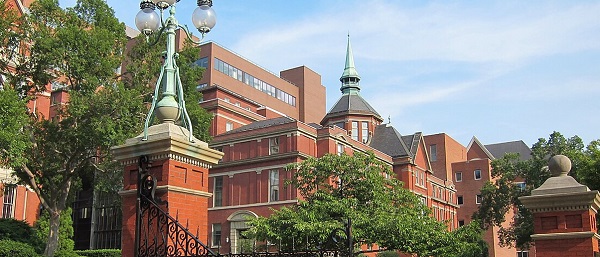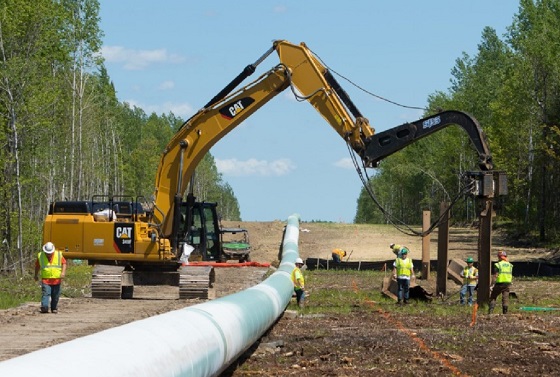Education
More money not the answer for schools—just look at Alberta

From the Fraser Institute
If you didn’t already know, higher government spending on schools doesn’t necessarily produce better results. Just look at what’s happening in Alberta.
According to Statistics Canada, from 2012/13 to 2021/22 (the latest year of available data), per-student spending in Alberta increased by 2.1 per cent from $13,146 to $13,421. After adjusting for inflation, this amounted to a 17.2 per cent spending reduction.
This stands in sharp contrast to most other provinces. During the same 10-year period, inflation-adjusted per-student spending increased in Quebec (by 24.6 per cent), British Columbia (5.1 per cent) and Ontario (0.5 per cent). By the raw numbers, Alberta now spends less per student than any other province.
The results?
According to the latest Programme for International Student Assessment (PISA) tests, Alberta students scored second only to Quebec on their math skills and almost half a grade level ahead of their peers in B.C. (even though B.C. spent $1,468 more per student in 2021/22). Even better, Alberta students scored highest in the country on their PISA reading and science assessments. This is exactly the opposite of what we’d expect if less spending hurt student performance.
Of course, this doesn’t mean that money is irrelevant. In countries that spend considerably less on education than Canada, more spending does correlate with better academic results. Excessive teacher turnover harms student learning and students must be in a stable learning environment to excel. If teachers aren’t paid enough to make a decent living, they will not remain in the profession, and students will suffer.
However, things are quite different in Canada where all provinces including Alberta already spend a significant amount on education. Governments should spend more wisely rather than simply pour more money into the education system.
Since Alberta is a top-performing province, it’s worth asking what makes this province different. Simply put, Albertans have more educational choice than any other province. Not only does Alberta have fully-funded public and separate school systems, accredited independent schools receive 70 per cent of per-student grants available to public schools, which makes it easier for independent schools to keep tuition affordable for parents. And it’s the only province to allow charter schools, which are fully-funded public schools that operate independently from government school boards. This makes it easier for charter schools to offer specialized programming based on parental demand and creates an incentive for government school boards to diversify their programming options.
Alberta also has a rigorous standardized testing program. Grades 6 and 9 write provincial achievement tests in English language arts, math, science and social studies. Meanwhile, Grade 12 students write diploma exams in a variety of courses that are worth 30 per cent of their final mark. These tests and exams play an important role in holding schools accountable.
However, before Alberta politicians get too comfortable, it’s important to note that Alberta, despite its relative success compared to other provinces, saw a significant decline in academic achievement over the last 20 years. The latest PISA tests show that Alberta students declined in their math skills by 45 points from 2003 to 2022. To put this in perspective, PISA equates 20 points with approximately one grade level. In other words, Alberta students are (on average) approximately two years behind in their math skills than they were in 2003.
Getting to the root cause of this decline will take considerable effort. But one thing we know for sure—despite any rhetoric to the contrary, simply spending more money will not solve this problem. As another school year begins, policymakers in Alberta and across the country should keep this in mind.
Author:
Daily Caller
‘No Critical Thinking’: Parents Sound Alarm As Tech Begins To ‘Replace The Teacher’


From the Daily Caller News Foundation
Parents are growing increasingly concerned about the prevalence of technology in classrooms, and the negative side effects that change is fueling among children nationwide.
Ever since the COVID-19 pandemic pushed schools to remote learning, many have only grown increasingly reliant on technology, shifting assignments into digital forms and handing every student a computer or tablet to aid their education in the classroom. But after seeing their kids become angrier, less sociable and less educated, parents are asking where the teachers have gone.
“What are we doing with an iPad all day, for eight hours a day in our kids’ hands?” Patricia McCoy, a mother of four in Wyoming, told the Daily Caller News Foundation. “Honestly, it’s disturbing. They give your kids worksheets on the iPad. There’s no actual critical thinking happening because they’re given apps to replace the teachers.”
Even when parents ask for additional help for their struggling children, the solution at some schools always comes back to more technology.
“If your kid is struggling in math, instead of giving them tutoring, they’re going to recommend to you that your child use this app on their iPad to help teach them how to do this math,” McCoy continued. “But that app doesn’t teach them how to do the math. They enter the problem and it gives them the solution all written out and worked out, so there’s no critical thinking being done. The answer is being given to them. They have ChatGPT at the ready, and other things similar to ChatGPT, which, again, does all the thinking for them. And all they have to do is show up, log into the iPad, get the answers from one app, put it into another app and get the grade.”
This has some parents wondering where the teachers have gone and whether they are teaching their students at all.
“THEY DON’T WANT TO TEACH”
“Covid did create a lot of this, and it made it a lot easier for some of the teachers now to just place these kids in front of a screen,” Mike Maldonado, a California father of five, told the DCNF. “And it makes it easier for some of these teachers because they don’t want to teach. They’re just there for a job.”
“We can’t ignore the fact that all this stuff makes it easier on the teacher, which actually, I think produces a worse result, “Jaime Brennan, member of the Frederick County Board of Education who spoke on behalf of herself and not the board, told the DCNF. “When a teacher can go online and make up an assignment using AI, now they haven’t thought. Now they’re not using their brainpower, and it’s like a trickle down effect. We’ve already introduced screens and technology to the level that as humans, I don’t think we were designed to use, and we haven’t adapted to it very well.”
Critically, Brennan said, the use of AI has prevented students from developing automaticity, the skill of memorizing basic solutions, such as simple addition, to the point that you do not even think about it, which is a foundational skill students carry on throughout their education and adult life.
McCoy told the DCNF that the digital learning environment has left her youngest son academically “two to three years behind” his siblings, who did not go through this new screen-based school system.
“He is drastically farther behind academically,” McCoy said. “He does what he needs to to pass, but intellectually and academically, he is years behind his two brothers and his sister at this age, and that is sad and heartbreaking as a mother to know that I probably failed my child because I went along with what the school said was going to help them.”
Despite being “years behind,” McCoy’s son is on track to graduate on time.
“We graduate kids who have to go to community college and take remedial math,” Brennan mentioned. “Our kids leave 12th grade and they go to 13th grade. So we’re putting out kids that are not ready to operate in the regular world.”
POSSESSED BY THE SCREEN
Not only is she worried about his education, the concerned mom has seen a noticeable shift in her son’s mood as he is forced to rely on more and more screen time.
“I tried to take my son’s phone away one time, and it looked like a demon was looking back at me. My son was not looking at me,” McCoy recalled. “His eyes were completely black and cold. It was like he was a totally other person, like a drug addict, and you’re taking their drug from them. And he was 15 at the time.”
Without his phone, McCoy said her son was a new person.
“That week, he was a totally different person. He wasn’t overly tired and drowsy all day. He was actually interacting with the family and spending time with us. Instead of being shut down and closed off in his room, he was playing with our dogs more,” McCoy said.
Maldonado thinks these behavioral issues stem partly from the lack of human interaction children experience in increasingly screen-dependent classrooms.
“Part of the problem is that they’ve lost a lot of the interaction,” Maldonado said. “This is why some of these kids I think act out, because they don’t want to listen to the teacher. There has to be that communication between two people, two humans, and not a screen where they can’t really interact and get the tone, the voice inflection of a response.”
“That is a major issue,” Maldonado continued. “Without social skills, how do you function in society? And we see it all the time. Social skills are definitely learned, it’s a trait that you pick up from interacting with people when you’re young. And that’s the big thing, people don’t realize that if there’s no interaction, that person is going to be withdrawn, not just from the classroom, but from the home and from society.”
The issue is especially apparent in children who were younger during the Covid year, Maldonado said. The so-called “Covid babies” are typically “the ones who you can see have the majority of the behavioral issues.”
“It is hard to get some of these kids to actually look you in the eye and make eye contact. They don’t know human interaction,” Brennan concurred, adding that students today are not even dating as much as they used to. “I’m really concerned where that’s going to lead, and what our kids are going to be like. We’re already seeing negative impacts of kind of this disintegration, people are waiting till later to getting married. They’re not getting married.”
THE PRICE AMERICA IS PAYING
Meanwhile, as the use of artificial intelligence (AI) among youth increases, more data and stories are coming out revealing the tool often exposes children to inappropriate content, damages the development of critical thinking skills, and at times, drives kids to suicide by explicitly coaching them to do so. Brain scans from the Massachusetts Institute of Technology (MIT) revealed that brain engagement was severely diminished under participants who used AI compared to those who used a traditional search engine, and memory recall following assignments completed with AI tanked.
Interestingly, schools that struggle with budget concerns and often fail to see promised district-wide staff raises somehow find funds to buy brand-new devices for every student — even when they already had slightly older, but still functional devices.
“Most of [the money goes] to administration and fees and other things that have nothing to do with the education of our kids, or they spend it on these expensive iPads and technology that shouldn’t even be in the classrooms, and then they go to the state and say, ‘You’re not giving us enough money. We need more money,’” McCoy told the DCNF. “Well, we keep throwing money at the problem, but the problem doesn’t get better or go away. It gets worse every year. So clearly, money isn’t solving the issue on why our kids can’t read, write and do math.”
“Stop spending the money on the iPads and put that money back in the classrooms instead,” McCoy continued. “Give it to the teachers.”
While Tina Descovich, co-founder and CEO of parental advocacy group Moms for Liberty, mirrors the concerns of many parents, she also told the DCNF there could be a place for technology in the classroom.
“I think they have to be used in a very responsible fashion,” Descovich said. “There’s so many wonderful teachers that would like to use AI in a way to help enhance their skills and teach their children better.”
Moms for Liberty signed a pledge with the White House in September to help foster innovation and interest in AI with America’s youth.
Brennan remains concerned that technology in the classroom prevents kids from thinking independently and may harm future skill building rather than facilitate an interest or expertise in technology.
“Are you trying to keep pace with the kids who are learning to use the technology, or are you trying to create the kids who are going to develop the technology? Because those are two different things,” Brennan said. “So if we’re just teaching our kids to be technology consumers, then sure, the easy way out is to do everything on the technology. If you’re trying to keep teach kids to be the technology developers, they need to learn to think and process away from the technology. They need to have other skills that are not technology based.”
PARENTS STILL HAVE POWER
For parents concerned about the technological takeover of their children’s classrooms who feel like their schools aren’t listening to them, Descovich said that along with helping their kids at home when possible, parents should “rally with like minded parents.”
“Start educating your community,” Descovich said. “I think when parents really understand what’s happening and what the concerns are and what the risks are, they will want to take action. And when you have enough parents showing up at school board meetings and speaking about an issue we have, as we know, you definitely can make an impact, and they will listen.”
Education
Johns Hopkins University Announces Free Tuition For Most Students


From the Daily Caller News Foundation
Johns Hopkins University (JHU) announced on Thursday it is making tuition free for families earning less than $200,000 and will waive both tuition and living expenses for those making less than $100,000.
The university stated that “a majority of American families” will qualify for the fee exemption, allowing most students to attend without contributing a single dollar. The decision is meant to help recruit “the best and brightest students to Johns Hopkins irrespective of their financial wherewithal.”
“Trying to understand financial aid offers can be overwhelming,” David Phillips, vice provost for admissions and financial aid at JHU, said in the announcement. “A big goal here is to simplify the process. We especially want to reach students and families from disadvantaged backgrounds, rural locations, and small towns across America who may not know that a Hopkins degree is within reach.”
Dear Readers:
As a nonprofit, we are dependent on the generosity of our readers.
Please consider making a small donation of any amount here.
Thank you!
In 2018, Michael Bloomberg donated nearly $2 billion to the university, the largest ever single gift to a U.S. university. JHU said it used this money “to become permanently need blind and no-loan in financial aid.”
The university also receives the most federal funding of any university, raking in more than $3 billion from the government in fiscal year 2023 for research and development alone. This is more than double what the next highest recipient of federal funding that year, the University of Washington, received.
Despite this, JHU in June complained that federal funding cuts forced it to institute a hiring freeze and pause annual pay increases for employees. In its message to the community at the time, the university also mentioned its disagreement with “recent efforts to limit or withhold visas from the international students and scholars.”
Some universities admit mass numbers of foreign students in order to pad their pockets, as such students often pay full tuition and fee costs without financial assistance.
-

 Alberta21 hours ago
Alberta21 hours agoFrom Underdog to Top Broodmare
-

 Energy2 days ago
Energy2 days agoPoilievre says West Coast Pipeline MOU is no guarantee
-

 Energy2 days ago
Energy2 days agoWill the New West Coast Pipeline MoU Lead to Results? Almost Certainly Not According to AI
-

 Alberta2 days ago
Alberta2 days agoWest Coast Pipeline MOU: A good first step, but project dead on arrival without Eby’s assent
-

 Carbon Tax2 days ago
Carbon Tax2 days agoCanadian energy policies undermine a century of North American integration
-

 Alberta2 days ago
Alberta2 days agoCarney forces Alberta to pay a steep price for the West Coast Pipeline MOU
-

 Energy1 day ago
Energy1 day agoOttawa and Alberta’s “MOU” a step in the right direction—but energy sector still faces high costs and weakened competitiveness
-

 Alberta2 days ago
Alberta2 days agoAlberta and Ottawa ink landmark energy agreement


